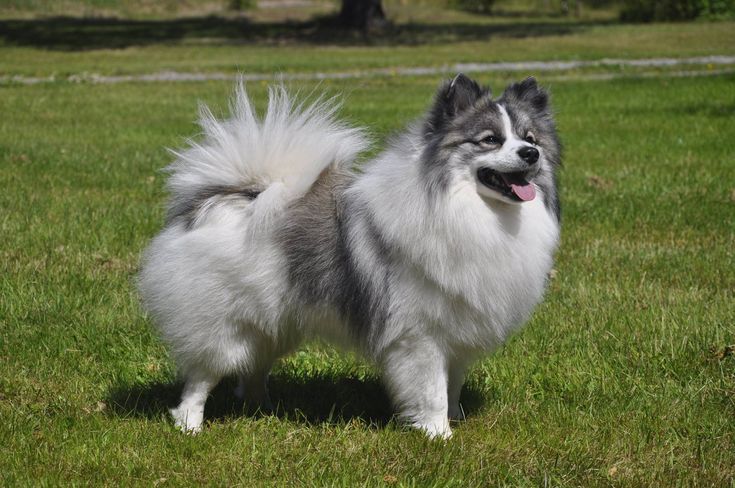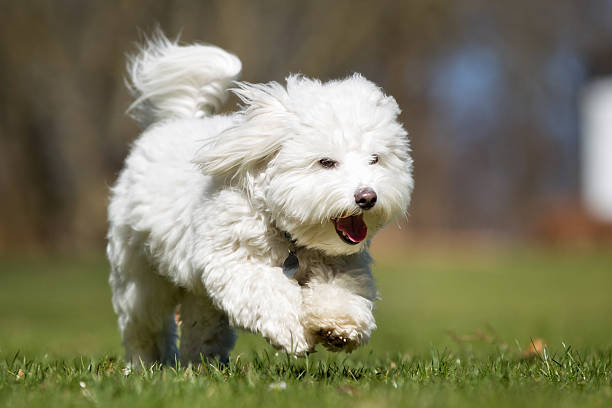Boxers are known for their high energy levels and playful nature, making them the perfect addition to any active household. Not only are they great with kids, but they also have a strong protective instinct, making them excellent watchdogs. In this article, we will explore the many qualities that make Boxers such wonderful family pets, including their friendly temperament, intelligence, and loyalty. So whether you are a first-time dog owner or a seasoned pet lover, read on to discover why Boxers are the ideal choice for your family.
Overview of Boxers
Boxers are a popular dog breed known for their energetic and playful nature. They are considered excellent family companions due to their friendly and loyal disposition. With a strong muscular build and an intelligent mind, Boxers are versatile dogs that excel in various activities such as agility, obedience, and even therapy work.
Origins of Boxers
Boxers have a fascinating history dating back to 19th century Germany. They were originally developed by crossing the now-extinct Bullenbeisser breed with English Bulldogs. The purpose was to create a strong and agile dog suitable for hunting large game, including wild boars and bears. Over time, Boxers transitioned from hunting to becoming reliable working dogs and eventually beloved family pets.
Physical Characteristics
Boxers are medium-sized dogs with a well-muscled and compact body. They possess a square-shaped head with a strong jawline and a distinctive underbite. Their eyes are dark and expressive, radiating intelligence and curiosity. Boxers have a short, smooth coat that comes in various shades, including fawn or brindle with white markings. Their athletic physique and sleek appearance contribute to their overall charm.
Temperament and Personality
Known for their exuberant personality, Boxers are highly energetic and playful. They thrive on physical activity and require regular exercise to channel their energy effectively. Despite their lively nature, Boxers are incredibly patient and gentle with children, making them exceptional family dogs. They form strong bonds with their human companions and are known to be protective and loyal.
Boxers also possess an intelligent and curious mind, which makes them eager learners. They respond well to positive reinforcement training methods and enjoy participating in mental stimulation activities. However, it is important to note that Boxers can have a stubborn streak, so consistent and firm training is necessary.
In addition to their playful nature, Boxers have a natural instinct for guarding and protecting their loved ones. They are watchful and alert, making them great watchdogs. Alongside their protective nature, Boxers are also known to be friendly and sociable with both humans and other animals when properly socialized from a young age.
Boxers as Family Companions
Playful and Energetic Nature
Boxers are known for their playful and energetic nature, making them excellent family companions. These dogs have a high energy level and love to be active. Whether it’s playing fetch in the backyard, going for long walks, or participating in agility training, boxers thrive on physical activity.
Their playful nature makes them great playmates for children as well. They have a natural zest for life and are always ready for a game of catch or a run around the yard. Boxers have a youthful spirit that can bring endless joy and entertainment to a family, especially those with children who are always looking for an adventure.
Bonding with Children
Boxers have a special affinity for children. They are gentle and patient, making them ideal companions for young kids. Boxers have a natural instinct to protect their loved ones, and this includes children. They are known to be reliable and watchful around kids, ensuring their safety and well-being.
These dogs can become best friends with children, forming a bond that is hard to break. Boxers are highly affectionate and enjoy spending time with their human family members. They are patient and tolerant, even when kids may unknowingly invade their personal space or play a little rough. Boxers are known to be great playmates and can keep children entertained for hours.
Suitability for Families
Boxers are well-suited for families due to their loving and loyal nature. They form strong bonds with their owners and quickly become an integral part of the family unit. Their cheerful and outgoing personalities make them a joy to be around, and they thrive in the company of their human family members.
In addition to being playful and affectionate, boxers are also highly intelligent and trainable. They are eager to please and respond well to positive reinforcement training methods. This makes them easy to integrate into a family environment and ensures that they can be well-behaved and obedient companions.
Furthermore, boxers are known for their protective instincts. They will go to great lengths to keep their family safe and secure. This makes them excellent watchdogs, always alert and ready to defend their loved ones if the need arises.
Overall, boxers are an excellent choice for families looking for an energetic and playful companion. Their loving and loyal nature, combined with their ability to bond with children, make them a perfect fit for households with kids. With proper training and socialization, boxers can bring immense joy, love, and laughter to any family fortunate enough to have them as companions.
Training and Exercise for Boxers
Training Requirements
Boxers are known for their intelligence and eagerness to please, which makes them highly trainable. However, they can also be stubborn at times, so consistent and firm training is essential. Start training your boxer from a young age to establish good behavior patterns and obedience.
When it comes to training boxers, positive reinforcement techniques work best. They respond well to praise, treats, and rewards, so be sure to use these as motivation during training sessions. Avoid using harsh punishment or yelling, as this can lead to fear or aggression in your boxer.
Consistency is key when training a boxer. Establish a routine and stick to it, providing daily training sessions to reinforce commands and behaviors. Keep training sessions short and engaging, as boxers have a relatively short attention span. Aim for multiple short sessions throughout the day rather than one long session.
Mental Stimulation
In addition to physical exercise, boxers require mental stimulation to keep their minds sharp and prevent boredom. These intelligent dogs thrive on mental challenges and problem-solving activities.
To provide mental stimulation for your boxer, consider incorporating puzzle toys, interactive games, and obedience training exercises that require them to think and make choices. Teaching your boxer new tricks or commands can also keep their minds engaged and stimulated.
Engaging in scent work activities such as hide-and-seek games or introducing them to new scents can also provide mental stimulation for boxers. These activities tap into their natural instincts and keep them mentally active and fulfilled.
Physical Exercise
Boxers are energetic dogs with high exercise needs. Regular physical exercise is crucial to keep them healthy, happy, and well-behaved. Aim for at least one hour of exercise every day, which can be divided into shorter sessions throughout the day.
Boxers enjoy a variety of physical activities, including brisk walks, jogging, running, and playing fetch. They also excel in dog sports such as agility, obedience trials, and tracking. These activities not only provide physical exercise but also mental stimulation, making them ideal for boxers.
Remember to always keep your boxer on a leash or in a securely fenced area during exercise sessions, as their strong prey drive may cause them to chase after small animals. Providing them with plenty of playtime and opportunities to burn off their energy will help prevent destructive behaviors that may arise from boredom or pent-up energy.
By understanding the training requirements, mental stimulation, and physical exercise needs of boxers, you can ensure that these energetic and playful dogs become well-rounded family companions. With proper training and exercise, your boxer will thrive and bring endless joy to your household.
Boxers and Other Pets
Compatibility with Other Dogs
Boxers are known to be generally friendly and sociable with other dogs. They have a playful and energetic nature, making them great companions for other canines. However, it is important to introduce them to new dogs gradually and in a controlled environment. This allows them to establish a positive relationship and prevent any potential conflicts. Proper socialization from an early age can help boxers develop good manners and ensure they get along well with other dogs.
Interaction with Cats
While boxers can get along with cats, it largely depends on the individual dog’s temperament and the cat’s personality. Some boxers have a high prey drive, which can make them inclined to chase smaller animals like cats. However, with proper training and socialization, boxers can learn to coexist peacefully with feline companions. It is important to supervise their initial interactions and provide a safe space for the cat to retreat to if needed. Slowly introducing them and rewarding positive behavior can help foster a harmonious relationship between boxers and cats.
Introducing Boxers to Other Pets
When introducing boxers to other pets such as rabbits, birds, or small mammals, caution should be exercised. Boxers have a natural prey drive, which may lead to chasing or potentially harming smaller animals. It is crucial to ensure the safety of all pets involved by providing secure enclosures or separate areas. Additionally, gradual introductions with proper supervision and positive reinforcement can help boxers understand boundaries and reduce any potential aggression towards smaller pets. Consulting with a professional trainer or animal behaviorist can also provide valuable guidance in introducing boxers to non-canine pets.
Remember, each boxer is unique, and their compatibility with other pets may vary. It is essential to assess their individual temperament, provide proper training and socialization, and always prioritize the safety and well-being of all animals involved.
Health Considerations
Common Health Issues
Boxers are generally a healthy breed, but like all dogs, they are prone to certain health issues. It is important for Boxer owners to be aware of these common health concerns to ensure their pets live long and healthy lives.
One of the most common health issues in Boxers is heart disease. Boxers are more susceptible to developing various heart conditions such as arrhythmia, dilated cardiomyopathy, and aortic stenosis. Regular check-ups with a veterinarian can help detect any signs of heart disease early on, allowing for proper management and treatment.
Another common health issue in Boxers is hip dysplasia. This is a genetic condition where the hip joint does not develop properly, leading to joint instability and potential arthritis. Boxers with hip dysplasia may experience pain, lameness, and difficulty in getting up or walking. Proper exercise, a balanced diet, and regular veterinary care can help manage this condition and improve the quality of life for affected Boxers.
Boxers are also prone to certain types of cancers, including lymphoma, mast cell tumors, and melanoma. Regular check-ups and screenings can help detect any signs of cancer early, increasing the chances of successful treatment and prolonging the dog’s life.
Exercise and Diet
To keep Boxers healthy and fit, regular exercise and a balanced diet are essential. Boxers are energetic and playful dogs that require daily physical activity to prevent obesity and maintain muscle tone. A combination of walks, runs, and playtime in a secure, fenced area can help meet their exercise needs.
In terms of diet, Boxers should be fed high-quality dog food that is appropriate for their age, size, and activity level. It is important to provide them with a well-balanced diet that includes a mix of protein, carbohydrates, healthy fats, and essential nutrients. Avoid overfeeding and be mindful of portion sizes to prevent weight gain, as obesity can lead to various health issues.
Regular Veterinary Care
Regular veterinary care is crucial for maintaining the overall health and well-being of Boxers. Routine check-ups, vaccinations, and preventive treatments are necessary to prevent and detect any potential health problems. Veterinarians can also provide guidance on proper nutrition, exercise routines, and any specific health concerns related to the breed.
In addition to regular check-ups, it is important to schedule dental cleanings for Boxers. Dental health is often overlooked but plays a vital role in their overall well-being. Regular dental care can prevent dental diseases, such as periodontal disease and tooth decay, which can cause pain and other health complications if left untreated.
By prioritizing regular veterinary care, owners can ensure their Boxers receive the necessary preventive measures and prompt treatment for any health issues, ultimately enhancing their quality of life.
Boxers make excellent additions to any family seeking an energetic and playful companion. With their boundless energy and friendly nature, they are sure to keep everyone entertained and engaged. Whether it’s playing fetch in the yard or joining in on a game of tag with the kids, boxers are always up for a good time. Additionally, their loyalty and protective instincts make them wonderful watchdogs, ensuring the safety of their loved ones. So, if you’re looking for a furry friend that will bring endless joy and laughter to your home, consider welcoming a boxer into your family.






